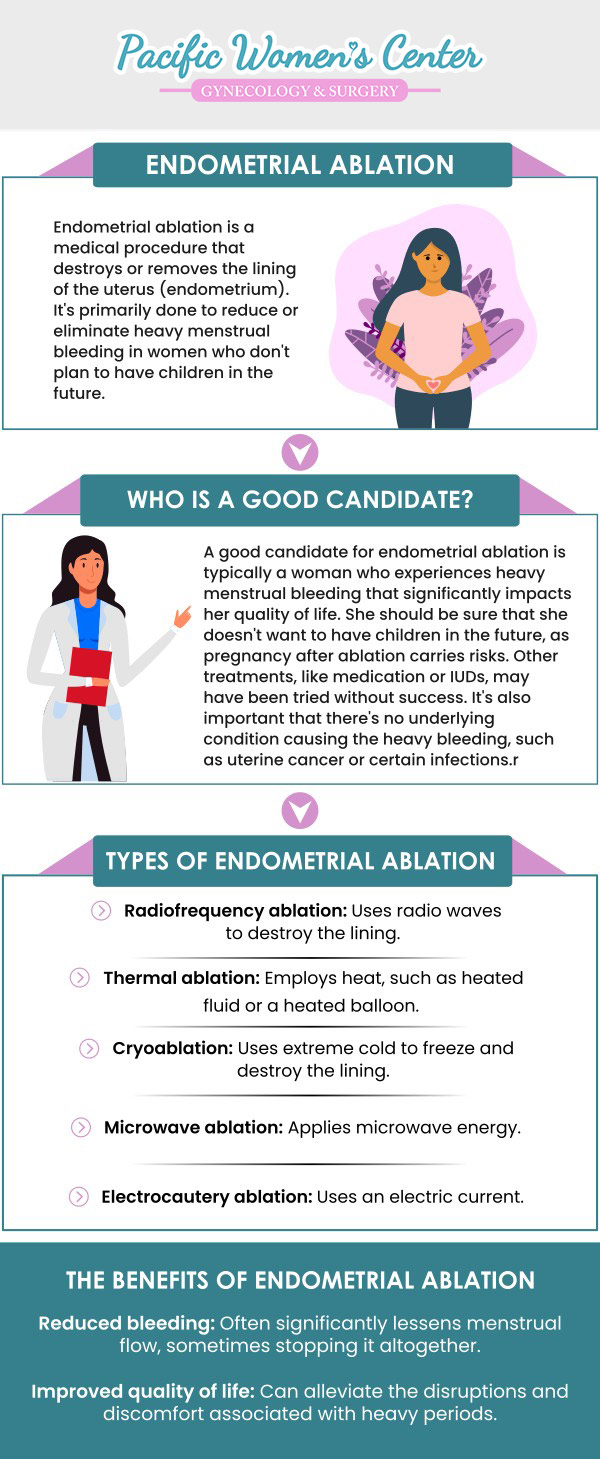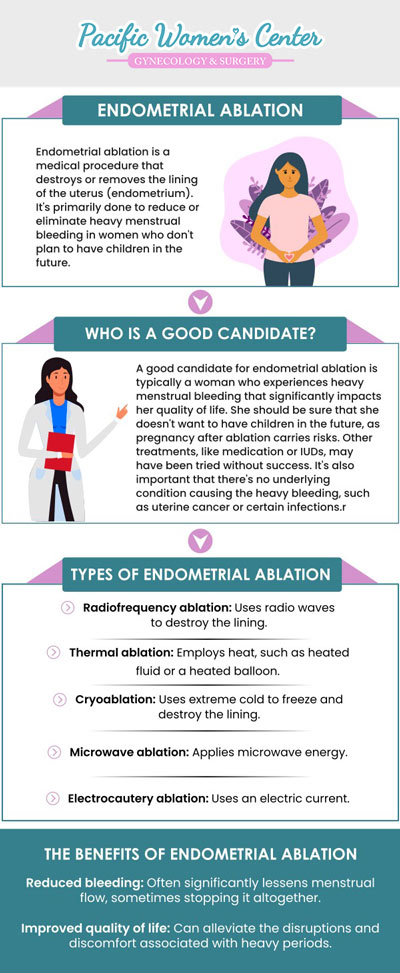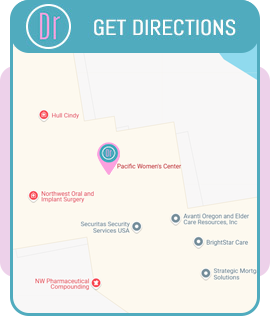Endometrial Ablation Treatment in Eugene OR
Endometrial Ablation – Dr. Richard Beyerlein MD
Have you ever had an infection of the uterus, endometrium, or endometrial hyperplasia? To lessen or eliminate heavy menstruation, the uterine endometrium’s thin layer can be removed via a treatment called endometrial ablation. This procedure does not affect hormone levels and the uterus is not thought to be removed with this treatment. Endometrial ablation techniques include radiofrequency, freezing, heated balloons, microwave energy, and electrosurgery. Dr. Richard Beyerlein MD, CPI, FACOG, and Tamara A. Stenshoel, MD, FACOG has experience in women’s health helping to enhance life quality and lessen heavy bleeding with endometrial ablation. To learn more about the procedure, contact us or visit us online to book an appointment. We are located at 911 Country Club Rd. Suite 222,, Eugene, OR 97401.




Table of Contents:
What is endometrial ablation?
Who is a good candidate for uterine ablation?
What can I expect after an endometrial ablation?
Can periods return after endometrial ablation?
Does endometrial ablation affect hormones?
Endometrial ablation is a procedure in which the lining of the uterus, known as the endometrium, is destroyed or removed in order to reduce or stop heavy menstrual bleeding. The procedure can be done using various methods, including heating the endometrium with a hot wand (thermal ablation), freezing it with liquid nitrogen (cryoablation), or removing it with a laser or electrical current (electrical ablation).
Endometrial ablation is typically done as an outpatient procedure and does not involve removing the uterus. It’s not a permanent birth control method and it’s not suitable for women who want to have children in the future.
A good candidate for endometrial ablation is typically a woman who has heavy menstrual bleeding, also known as menorrhagia, that is not caused by a structural abnormality of the uterus or other underlying medical conditions. This procedure is often recommended for women who do not want to have children in the future and who have completed childbearing.
Additionally, a good candidate for endometrial ablation is a woman who has not responded to other treatment options such as medication or hormonal therapy, or who cannot take these treatments due to other health issues. Endometrial ablation is not a suitable option for women who have uterine fibroids, pelvic inflammatory disease, or an active pelvic infection. Women who have or are at high risk for endometrial cancer should not undergo this procedure.
After an endometrial ablation, you can expect to experience some cramping and discomfort during the first few days. Your doctor will likely prescribe pain medication to help manage this. You should also expect to experience some bleeding or spotting for the first few weeks after the procedure, although the amount of bleeding is usually less than before the ablation. You will need to avoid sexual intercourse, tampon use, and strenuous exercise for about 4 weeks after the procedure.
Most women can return to their normal activities within a week of the procedure, but you should avoid heavy lifting and strenuous activity. It’s very important to follow the instructions provided by your doctor and to call them if you have any concerns.
It’s important to understand that endometrial ablation does not guarantee that your menstrual bleeding will stop completely, but it will significantly decrease the bleeding and can make it more manageable. Endometrial ablation is not a permanent birth control method and does not protect against sexually transmitted infections.
Periods can return after endometrial ablation in some women, although the bleeding is usually much lighter and less frequent than before the procedure. The success rate of endometrial ablation in terms of reducing menstrual bleeding varies depending on the method used and the individual woman, but it’s generally considered to be between 70 and 90 percent.
Though endometrial ablation does not guarantee that your menstrual bleeding will stop completely, it will significantly decrease the bleeding and can make it more manageable. There is a small risk that the endometrial tissue will regrow and the bleeding will return, although this is very rare. If the bleeding returns after an endometrial ablation, it’s important to consult with your doctor to rule out any other causes such as endometrial hyperplasia or endometrial cancer. They may suggest another form of treatment, such as a hysterectomy, which is the removal of the uterus, or an additional ablation procedure.
Endometrial ablation does not affect the ovaries or the production of hormones by the ovaries. The ovaries continue to produce estrogen and progesterone, which are the hormones that regulate the menstrual cycle. The procedure only destroys or removes the endometrium, which is the lining of the uterus that is shed during menstruation.
Some women may experience changes in their menstrual cycle after endometrial ablation. The menstrual bleeding may be less heavy and less frequent, and some women may experience irregular or unpredictable bleeding. This can be due to the fact that the procedure can affect the endometrial tissue and the way it responds to hormonal changes.
To learn more about endometrial ablation, contact us or schedule an appointment online. We are located at 911 Country Club Rd. Suite 222,, Eugene, OR 97401. We serve patients from Eugene OR, Springfield OR, Coburg OR, Creswell OR, Cottage Grove OR, Lowell OR, Junction City OR, and surrounding areas.

ADDITIONAL SERVICES YOU MAY NEED
❱ Abdominal Hysterectomy
❱ Bladder Lift Surgeon Q&A
❱ Cervical Cone Biopsy
❱ Colposcopy
❱ Endometrial Ablation
❱ Endometrial Biopsy
❱ Female Sexual Dysfunction
❱ Gynecological Surgery
❱ Gynecology
❱ Hormone Therapy
❱ Vaginal Hysterectomy
❱ Endometriosis Diagnosis & Care



